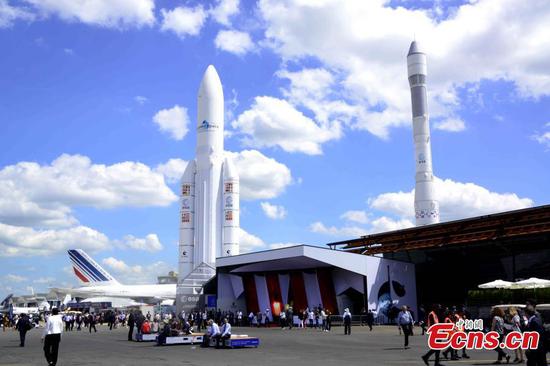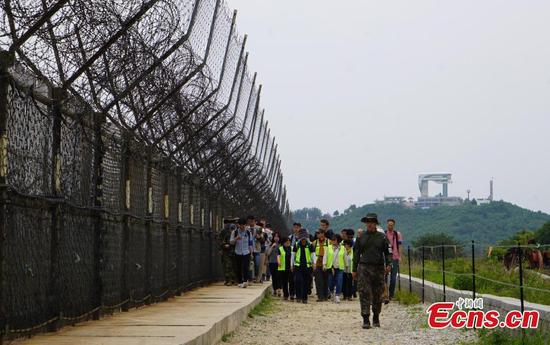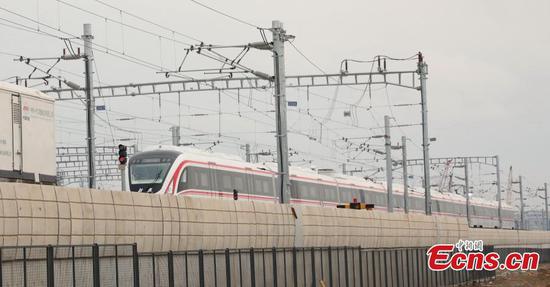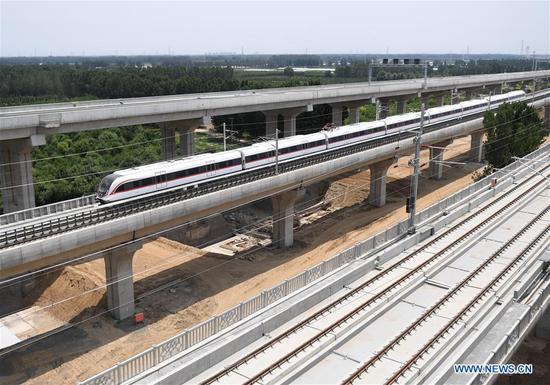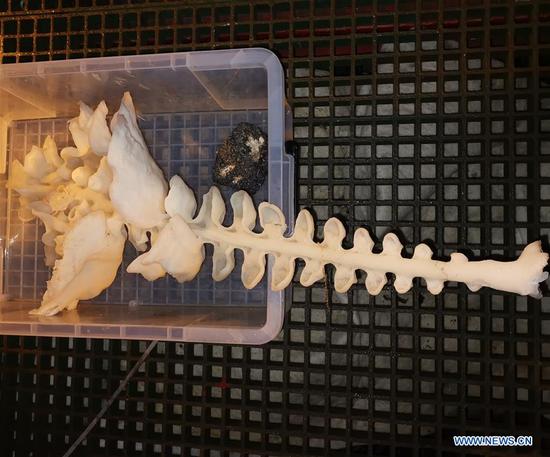
Choosing Russian snacks. /CGTN Photo
Trade between China and Russia was worth more than 100 billion U.S. dollars in 2018, and the two countries expect it to double in the next few years. Meanwhile, cross-border e-commerce hit 3.7 billion U.S. dollars, up over 20 percent year on year, in the first three quarters last year. Although it still accounts for only a small portion of the total, many are confident with the strong growth potential in the sector.
At this year's China-Russia Expo, industry insiders from both sides come together to exchange experience to deal with current challenges and better exploit the market potential. Sergey Iniushin, Russia's Trade Representative in China, pointed out that Russian consumers used to shop on the U.S. or European e-commerce platforms, but now most of them use Chinese ones like Alibaba. But he said that there are problems that still need to be tackled. Namely, Chinese goods sold to Russia account for the vast majority of the total China-Russia e-commerce turnover.
Representatives of e-commerce enterprise have their own concerns. Tao Sha, CEO of Epinduo, said her company has been specialized in online-to-offline (O2O) sales of Russian goods for three years. She realized that imported Russian products are mostly prepackaged food with a limited profit margin. Popular Russian meat and dairy products still face import restrictions. Household chemicals have long import procedures and low brand awareness. Besides, only very few goods meet shelf-ready criteria of big Chinese e-commerce platforms. That all require a more favorable environment.
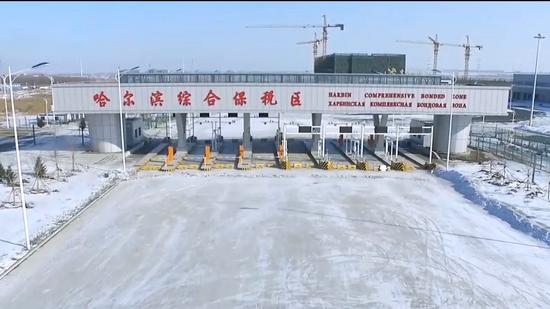
Last year, China and Russia signed a memorandum of understanding to establish a bilateral e-commerce cooperation mechanism. Qian Fangli of China's commerce ministry's department of e-commerce and informatization said China's New e-Commerce Law has laid the ground for high-quality development of the sector. And at a local level, Harbin has also been greenlighted as one of the 22 cities to establish cross-border e-commerce pilot zones.
The city's specially established international e-commerce logistics center now handles more than 20,000 small parcels a day. Within just a few weeks, they will be delivered to buyers across the vast territory of Russia who have ordered from Chinese merchants online. It is one of the many signs that new attempts are boosting e-commerce between the two countries.
Wang Zixu, vice general manager of Harbin Inland Port Operation Development Company, said traders could stock up in advance in their bonded zone to shorten logistics times and enable domestic consumers to experience the products here. Tax relief policies on relevant enterprises and a white list applied for e-commerce goods contribute to lower prices and a bigger variety of products. And more efficient customs clearance will allow consumers to get their orders very soon.


















